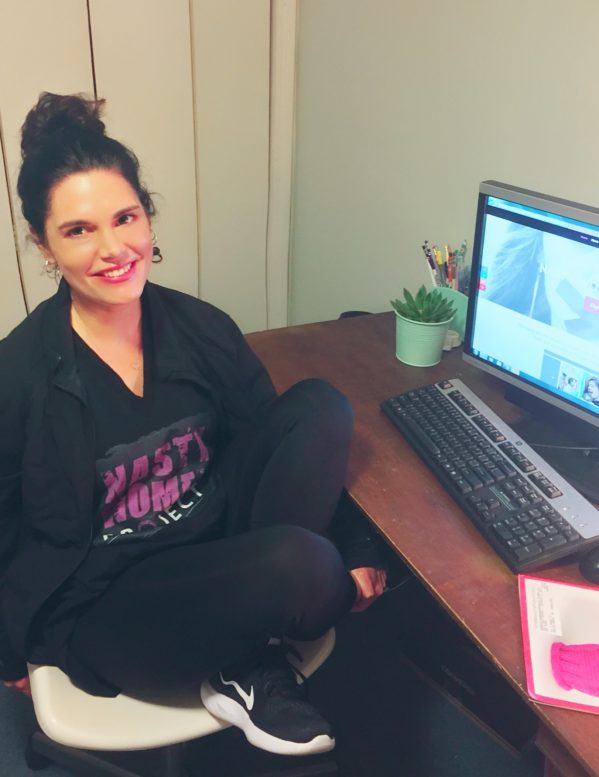By DAVID DUPONT
BG Independent News
For Kirsty Sayer, the rise of Donald Trump was personal.
The Bowling Green woman was just starting to emerge from a complex Post-Traumatic Stress when Trump started his general election campaign.
What she felt was more than political disagreement. His inescapable appearance triggered something deep inside. Emotions that she was just starting to come to grips with. Deep trauma that had controlled her life.
Now Sayers saw in Trump a reflection of the older family member who has sexually abused her. And the candidate’s dismissive attitude toward the women who accused him of sexual improprieties, including assault, reminded her of how her abuser treated her. They were cut from the same cloth, both domineering narcissists.
So Sayer was one of so many other women who “gritted our teeth” as the election approached, waiting for it to be over. Hopeful, even confident, that after Nov. 8 they’d be done with Donald Trump.
Then the votes were counted, in Florida, North Carolina, Pennsylvania, Wisconsin, Michigan and Ohio.
“There was a sense of great helplessness,” Sayer said. “We were just unmoored. Nobody was really expecting it. … Now what?”
For Sayer and about 80 other women, the answer to that question includes bringing their written reactions to Trump’s election together in a book “The Nasty Women Project,” available today (March 1) through the website http://nastywomenproject.com. All the proceeds will benefit Planned Parenthood. “This is a labor of love. Nobody’s taking any money,” Sayer said.
“Women particularly feel better when they have something to channel their energies into, and when they are connected with other people in well doing. It’s therapeutic.”
For Sayer, who blogs and has published in magazines, it was “a difficult time.”
“I needed a project,” she said, and she had a story that was demanding to be told, but she didn’t feel quite ready.
She connected with the project’s editor Erin Elizabeth Passons. They agreed her piece would fit within the parameters of the project. Sayer sent a draft, a self-of-consciousness story, overflowing its narrative bounds.
A naturalized citizen as of this summer, Sayer had just two years ago let her family back in South Africa know about the abuse she suffered, and it caused a severe rift in the family. The revelation also caused internal turmoil. Her identity was built on keeping this secret, and in doing so protecting her family. “It was my cross to bear.”
She found herself emotionally crippled, and only through the help of her immediate family, friends and almost daily therapy was she starting to emerge.
In the process she shed her Mormon faith. She said she felt her abuser was “emboldened” by its patriarchal strictures.
Though she admits to questioning her faith even as a child, she had also served as “a huge apologist” for it.
“Shaking off the shackles of that once and for all at beginning of the healing process from PTSD sort of freed me up to do the other work,” she said.
All this was in her original draft. Passons helped her shape the narrative, cutting some threads out altogether, including the discussion of religion.
Even as the deadline was at hand, she hesitated. Her eldest son, a student at Bowling Green State University, was home and asked her what was wrong.
She was concerned about sending the story. Publishing it would mean repercussions in the family.
He asked, why are you doing it?
To help others.
Will it?
Yes, she said.
She hit send.
Sayer said she was satisfied with the process, but will return to reclaim the story at a future date.
For now she’s doing what she can to help promote the book. She’d like to gather some contributors from the region for a local reading.
She’s also working with some female dancers who are friends of her eldest son to produce a “Nasty Women Project” video.
“On good days,” Sayer said, “I’m very excited about the possibilities. On bad days I get very upset to be protesting about something we thought we had settled decades ago.”

